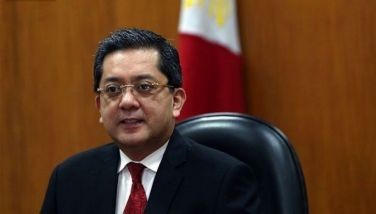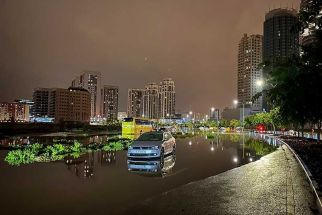RP under US Senate scrutiny for graft in ADB, WB projects
November 26, 2005 | 12:00am
WASHINGTON — The Philippines is under scrutiny by a US Senate committee over allegations of corruption involving Asian Development Bank (ADB) and World Bank (WB) projects over a 15-year period dating from the start of President Corazon Aquino’s administration in February 1986.
Keith Luce, a senior staffer of the Senate foreign relations committee headed by Indiana Republican Sen. Richard Lugar, said their attention was drawn to the Philippines because ADB projects in that country showed an unusually high failure rate.
Asked if the Philippines and the Manila-based ADB would be asked to "open its books" to facilitate the committee’s review, Luce said: "We don’t use that phrase because that denotes an audit function."
"We are not in an audit mode presently. We are examining the process, how decisions were made, why they were made, why these projects were selected, why others were not selected," he told The STAR in an interview at his office at Capitol Hill.
"The Philippine government has been very forthcoming with questions we’ve posed and its embassy in Washington has also been helpful," he said.
Luce said the scrutiny was part of a global oversight review by the Senate body to stamp out fraud and corruption at multilateral development banks (MDBs), a term that typically refers to the WB, the ADB, the African Development Bank, the European Bank for Reconstruction and Development and the Inter-American Development Bank.
Since 1960 the United States has provided more than $42 billion in direct contributions to MDBs and Lugar said "we must ensure that our contributions are managed well and that the mission of the MDBs is not undercut by corruption."
Lugar’s reforms to bring greater transparency and accountability to the five MDBs were signed into law by President George W. Bush on Nov. 14.
Specifically, the reforms include measures to seek financial disclosures from development bank employees similar to those required of US government officials and members of Congress, and to improve oversight of development bank loans and strengthen whistleblower policies.
Luce said the committee began looking into the activities of the MDBs in 2003 after receiving information from credible sources within the banks alleging corruption in the implementation of projects and internally.
Asked how much money had actually been siphoned off from the five MDBs as a result of corruption Luce said $100 billion was one extreme figure mentioned.
"Others say it is less than that. We cannot quantify the amount but we know it is unacceptable," Luce said.
Four committee hearings have been held so far to examine ways to strengthen anti-corruption and anti-fraud efforts at MDBs.
"This global oversight effort in terms of banks includes the Philippines and... the committee is interested in receiving a summary of projects from the World Bank and ADB going back about 15 years or so," Luce said.
Asked if money intended for projects in the Philippines disappeared into the pockets of politicians, Luce said: "I’m not saying that. I’m saying the projects were not judged to be successful. I can’t comment any further until we get additional information."
"Senator Lugar cares deeply about the people of the Philippines and he wants to make certain the people receive the full benefits from projects that have been approved by the ADB and the World Bank," Luce added.
Asked if the committee was looking at corruption involving MDB projects in other Asian countries, Luce mentioned Indonesia and Cambodia, adding that the list will probably grow longer as the investigation goes on.
"This is a long-term project and we are now at a phase where we are able to take a look at specific countries and ask questions," he said.
Jay Branegan, another senior committee staffer, said in talks with ADB officials during a visit to the Philippines last year he was told the in-country failure rate of projects during the 15-year period under review was over 60 percent.
ADB officials said many of the projects began soon after Aquino took over from deposed dictator Ferdinand Marcos.
They admitted that in their zeal to support Aquino and her democratic reforms after 20 years of strong-arm rule by Marcos, they eagerly approved projects and pushed out too many and too fast without due diligence. Also, some of the projects were too complex.
"My impression is that ADB is involved in fewer projects in the Philippines now but doing them better," he said.
Asked if he could put a value on the amount of money lost in the projects, Luce said: "I cannot comment on that until we get additional information. This is an ongoing evaluation."
He said ADB president Haruhiko Kuroda met with Lugar a few months ago to update him on the bank’s efforts to fight corruption inside and outside the organization.
Paul Speltz, US executive director to the ADB has also testified before the committee.
Last July the ADB executive board endorsed a new three-year strategy for operations in the Philippines under which new lending could range from zero to as much as $1.5 billion, depending on the pace of fiscal consolidation and key sector reforms.
The bank said this was an innovative and flexible approach designed to build on the lessons of the past and have a more demonstrable impact on reducing poverty.
Various international agencies have expressed concern about massive corruption in the Philippines, which analysts say has discouraged foreign investors.
Some surveys portray the Philippines as the second most corrupt country in Asia next to Indonesia.
Corruption is one of the main causes of the government’s chronic budget deficit, which analysts warn could deteriorate into a fiscal crisis and derail Mrs. Arroyo’s anti-poverty agenda.
Independent estimates suggest at least a fifth of the government budget is lost through graft.
Keith Luce, a senior staffer of the Senate foreign relations committee headed by Indiana Republican Sen. Richard Lugar, said their attention was drawn to the Philippines because ADB projects in that country showed an unusually high failure rate.
Asked if the Philippines and the Manila-based ADB would be asked to "open its books" to facilitate the committee’s review, Luce said: "We don’t use that phrase because that denotes an audit function."
"We are not in an audit mode presently. We are examining the process, how decisions were made, why they were made, why these projects were selected, why others were not selected," he told The STAR in an interview at his office at Capitol Hill.
"The Philippine government has been very forthcoming with questions we’ve posed and its embassy in Washington has also been helpful," he said.
Luce said the scrutiny was part of a global oversight review by the Senate body to stamp out fraud and corruption at multilateral development banks (MDBs), a term that typically refers to the WB, the ADB, the African Development Bank, the European Bank for Reconstruction and Development and the Inter-American Development Bank.
Since 1960 the United States has provided more than $42 billion in direct contributions to MDBs and Lugar said "we must ensure that our contributions are managed well and that the mission of the MDBs is not undercut by corruption."
Lugar’s reforms to bring greater transparency and accountability to the five MDBs were signed into law by President George W. Bush on Nov. 14.
Specifically, the reforms include measures to seek financial disclosures from development bank employees similar to those required of US government officials and members of Congress, and to improve oversight of development bank loans and strengthen whistleblower policies.
Luce said the committee began looking into the activities of the MDBs in 2003 after receiving information from credible sources within the banks alleging corruption in the implementation of projects and internally.
Asked how much money had actually been siphoned off from the five MDBs as a result of corruption Luce said $100 billion was one extreme figure mentioned.
"Others say it is less than that. We cannot quantify the amount but we know it is unacceptable," Luce said.
Four committee hearings have been held so far to examine ways to strengthen anti-corruption and anti-fraud efforts at MDBs.
"This global oversight effort in terms of banks includes the Philippines and... the committee is interested in receiving a summary of projects from the World Bank and ADB going back about 15 years or so," Luce said.
Asked if money intended for projects in the Philippines disappeared into the pockets of politicians, Luce said: "I’m not saying that. I’m saying the projects were not judged to be successful. I can’t comment any further until we get additional information."
"Senator Lugar cares deeply about the people of the Philippines and he wants to make certain the people receive the full benefits from projects that have been approved by the ADB and the World Bank," Luce added.
Asked if the committee was looking at corruption involving MDB projects in other Asian countries, Luce mentioned Indonesia and Cambodia, adding that the list will probably grow longer as the investigation goes on.
"This is a long-term project and we are now at a phase where we are able to take a look at specific countries and ask questions," he said.
Jay Branegan, another senior committee staffer, said in talks with ADB officials during a visit to the Philippines last year he was told the in-country failure rate of projects during the 15-year period under review was over 60 percent.
ADB officials said many of the projects began soon after Aquino took over from deposed dictator Ferdinand Marcos.
They admitted that in their zeal to support Aquino and her democratic reforms after 20 years of strong-arm rule by Marcos, they eagerly approved projects and pushed out too many and too fast without due diligence. Also, some of the projects were too complex.
"My impression is that ADB is involved in fewer projects in the Philippines now but doing them better," he said.
Asked if he could put a value on the amount of money lost in the projects, Luce said: "I cannot comment on that until we get additional information. This is an ongoing evaluation."
He said ADB president Haruhiko Kuroda met with Lugar a few months ago to update him on the bank’s efforts to fight corruption inside and outside the organization.
Paul Speltz, US executive director to the ADB has also testified before the committee.
Last July the ADB executive board endorsed a new three-year strategy for operations in the Philippines under which new lending could range from zero to as much as $1.5 billion, depending on the pace of fiscal consolidation and key sector reforms.
The bank said this was an innovative and flexible approach designed to build on the lessons of the past and have a more demonstrable impact on reducing poverty.
Various international agencies have expressed concern about massive corruption in the Philippines, which analysts say has discouraged foreign investors.
Some surveys portray the Philippines as the second most corrupt country in Asia next to Indonesia.
Corruption is one of the main causes of the government’s chronic budget deficit, which analysts warn could deteriorate into a fiscal crisis and derail Mrs. Arroyo’s anti-poverty agenda.
Independent estimates suggest at least a fifth of the government budget is lost through graft.
BrandSpace Articles
<
>
- Latest
- Trending
Trending
Latest
Trending
Latest
Recommended



























